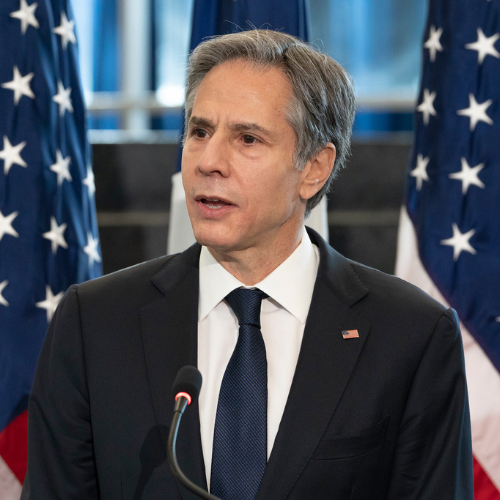U.S. Secretary of State Antony Blinken met with leaders from the Association of Southeast Asian Nations (ASEAN). This gathering, which included leaders from ten countries, was held to discuss various important issues, particularly focusing on China’s increasing assertiveness in the South China Sea. Antony Blinken expressed deep concern over what he described as “dangerous” and “unlawful” actions by China in this vital region.
Antony Blinken Highlights Rising Tensions in the South China Sea
The South China Sea is a crucial waterway where about one-third of the world’s trade passes. It is also rich in fish and has valuable resources like oil and gas. China claims almost the entire area, which overlaps with claims from several ASEAN nations, including the Philippines, Vietnam, Malaysia, and Brunei. This situation has created significant tension among these countries, as they all want to protect their rights to the sea.
In the past year, there have been many violent confrontations at sea involving Chinese and Filipino vessels. Antony Blinken pointed out that these incidents have raised alarm bells about the potential for a larger conflict. For example, Chinese forces have clashed with Philippine boats multiple times, and reports have surfaced of Chinese patrols harassing fishermen from Vietnam. These actions have led to heightened fears that if these confrontations continue, they could escalate into a more serious situation.
During his speech at the summit, Antony Blinken stated, “We are very concerned about China’s increasingly dangerous and unlawful activities in the South China Sea.” He emphasized that such actions are not just harmful to the ships and people involved but also contradict the commitments made by China to resolve disputes peacefully.
Australia’s Strategic Presence in the South China Sea: Strengthening Ties with the Philippines
One of the main messages Antony Blinken delivered was that the United States will continue to support freedom of navigation in the South China Sea. This means that the U.S. believes that all ships should be allowed to travel freely in these waters without fear of being stopped or attacked. The U.S. does not have any territorial claims in the South China Sea, but it has been actively sending naval ships and fighter jets to patrol the area as a way of challenging China’s claims and actions.
Antony Blinken’s comments came at a time when tensions in the region are at a peak. Philippine President Ferdinand Marcos Jr. shared his frustration with summit leaders, saying his country continues to face harassment and intimidation from Chinese forces. He expressed disappointment that the situation in the South China Sea remains tense and largely unchanged due to China’s ongoing actions, which he described as violations of international law.
Marcos also called for a sense of urgency in the ongoing negotiations between ASEAN and China to establish a code of conduct that would help manage disputes in the South China Sea. This code of conduct is essential for ensuring that all countries involved can peacefully navigate their differences.
Leaders from Malaysia and Singapore echoed similar sentiments, warning that if the issues in the South China Sea are not addressed, there could be “real risks of an accident spiraling into conflict.” They stressed the importance of finding a resolution to these tensions for the safety and stability of the region.
Teresa Magbanua: The Philippines Faces Tough Reality in South China Sea Dispute
China’s Response to International Concerns
On the other side of the discussions, Chinese Premier Li Qiang defended China’s actions in the South China Sea. He labeled the region as a “shared home” and insisted that China was merely protecting its rights. Li criticized what he called external forces that were trying to create tension and conflicts in Asia, without specifically naming any countries. However, it was clear that his comments were directed at the United States, which China has often accused of meddling in its territorial disputes.
In addition to the South China Sea issues, Antony Blinken also highlighted the importance of maintaining stability in other areas, such as the Taiwan Strait. Taiwan is a self-governing island that China claims as its territory, and there have been increasing tensions surrounding its status. Antony Blinken’s visit to the ASEAN summit was not only to address the South China Sea situation but also to discuss other regional challenges, including the civil war in Myanmar, North Korea’s actions, and Russia’s invasion of Ukraine.
Despite the serious nature of these discussions, ASEAN countries have been careful in how they approach their relationship with China. China is the largest trading partner for ASEAN nations, and they want to maintain good economic ties. Therefore, while leaders have expressed their concerns about China’s behavior in the South China Sea, they have also focused on expanding trade and cooperation in other areas.
This recent summit illustrates the complex dynamics at play in Southeast Asia, where nations are trying to balance their economic interests with the need to address pressing security concerns. Antony Blinken’s remarks highlight the ongoing tensions in the region and the importance of dialogue among countries to find a way forward.


